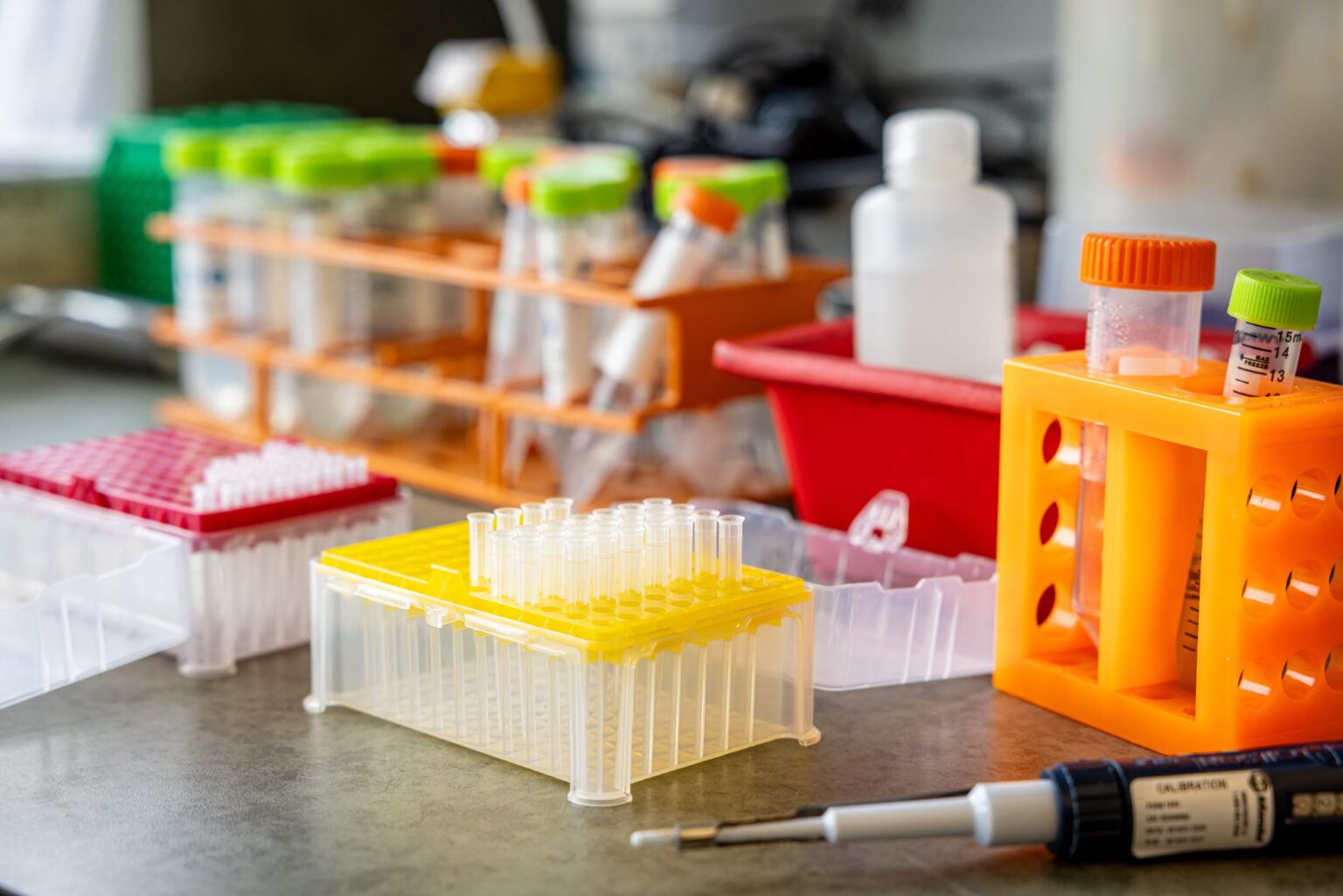We are proud to announce the expansion of the CACHE Governing Board, which now includes representatives from four pharmaceutical companies; UCB, AstraZeneca, Bayer, and Boehringer Ingelheim. The Governing Board’s role is to actively lead and provide direction for the CACHE challenges, as well as nominate members for its independent expert panels for target selection, application review and hit evaluation.
For more information, contact:
Estrid Jakobsen at [email protected]
Julia Smith at [email protected]
Conscience Expands CACHE Governing Board
Leading industry representatives collaborate to provide guidance on computational small molecule hit-finding, which is critical in drug discovery
Toronto, ON, Canada, April 2, 2025 — Conscience, a non-profit that uses open science and true collaboration to enable drug discovery and development where market solutions are limited, is pleased to share its CACHE (Critical Assessment of Computational Hit-finding Experiments) Governing Board now includes four industry members. Yogesh Sabnis, Director of Lead Design from UCB, has been appointed to the Board, following the appointment of Anders Hogner, Senior Director AI Science at AstraZeneca, in November. Sabnis and Hogner join Judith Günther, Senior Principal Scientist within Bayer’s Structural Biology and Computational Design Team, and Yvonne Westermaier, Principal Scientist II in Computational Chemistry at Boehringer Ingelheim (BI), both of whom have renewed their commitment to the CACHE Governing Board for two-year terms. Westermaier is taking the place of Uta Lessel, who is stepping down from the CACHE Board and is a Principal Scientist at BI.
The Governing Board’s role is to actively lead and provide direction for the CACHE challenges, as well as nominate members for its independent expert panels for target selection, application review and hit evaluation.
“We are thrilled to welcome Yogesh Sabnis to the CACHE Governing Board to work alongside Anders Hogner, Judith Günther, and Yvonne Westermaier to provide strategic guidance and ensure that CACHE continues to define the state-of-the-art in computational hit finding. We would also like to thank Uta Lessel for her contributions in shaping this competition,” said Matthieu Schapira, CACHE’s Scientific Coordinator, Principal Investigator at the Structural Genomics Consortium and Professor at University of Toronto. “Having representatives with deep domain expertise from Bayer, UCB, AstraZeneca, and BI at the table is important to help us guide the community towards a technological breakthrough in computational drug discovery.”
CACHE Challenges are open competitions to encourage and accelerate early-stage drug discovery, improving AI methods and digital tools that facilitate and support the process. All findings and benchmarks are shared publicly, without patents, to create opportunities for life-changing impacts and maximize the benefits of open sharing and collaboration among industry, SMEs, and academia. In its first competition, the CACHE Challenge succeeded in recognizing that AI techniques offer promise in identifying hits. The second CACHE Challenge focused on identifying molecules that would bind to a highly conserved site on a SARS-CoV-2 protein, which, if successfully developed into a drug, could be used to treat all coronaviruses. In the third CACHE Challenge, researchers from across the globe used computational methods to predict molecules to bind on a potential target to develop medicines against another round of COVID, SARS-CoV-2. Four molecules were identified that were chemically novel and showed promise as starting points for drug development. The dataset generated from each competition, including the promising new molecules, is now available publicly on the CACHE Challenges website for researchers anywhere to develop further without patent or restriction.
About Conscience
Conscience is a non-profit focused on enabling drug discovery and development in areas where open sharing and collaboration are key to advancement and where market solutions are limited, such as rare or infectious diseases and antimicrobial resistance. It does so by encouraging teamwork, the open sharing of knowledge and tools, the use of artificial intelligence, and the development of policies that break down barriers of traditional drug development models. Powered by a network that includes academics, industry, technologists, policy experts, and public support, Conscience seeks to drive innovation by turning drug discovery and development into a team sport. Through key initiatives, such as its DMOS (Developing Medicines through Open Science) program and CACHE (Critical Assessment of Computation Hit-finding Experiments) Challenges, Conscience is accelerating the path to treatments for those who need them most so no patient is left behind. For more information, visit www.conscience.ca.
About the CACHE Challenges
The CACHE (Critical Assessment of Computation Hit-finding Experiments) Challenges offer an open competition platform to help accelerate one of the early stages of drug discovery. Researchers from academia, industry, and nonprofits are invited to deploy their best computational methods to predict small molecules that will bind to a predefined target linked to a specific disease, a critical step in the drug discovery pipeline known as hit-finding. Their predictions are evaluated and benchmarked in a state-of-the-art laboratory, by our partners at the Structural Genomics Consortium (SGC). All the benchmarked results are shared openly and publicly with the world, and all chemical structures are made available without patent to all. Visit conscience.ca/cache-challenge/.
